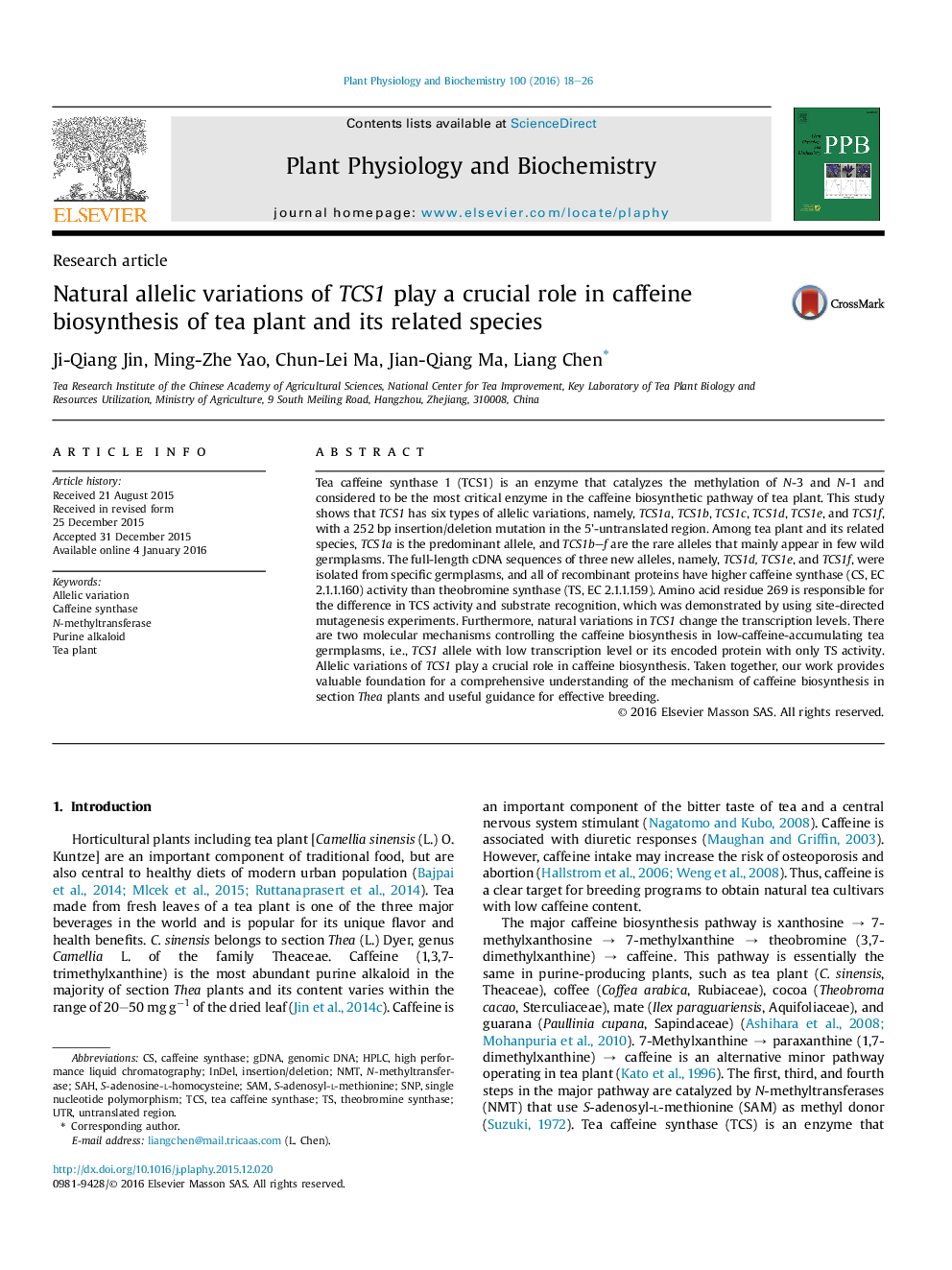| Article ID | Journal | Published Year | Pages | File Type |
|---|---|---|---|---|
| 2015796 | Plant Physiology and Biochemistry | 2016 | 9 Pages |
Abstract
Tea caffeine synthase 1 (TCS1) is an enzyme that catalyzes the methylation of N-3 and N-1 and considered to be the most critical enzyme in the caffeine biosynthetic pathway of tea plant. This study shows that TCS1 has six types of allelic variations, namely, TCS1a, TCS1b, TCS1c, TCS1d, TCS1e, and TCS1f, with a 252Â bp insertion/deletion mutation in the 5'-untranslated region. Among tea plant and its related species, TCS1a is the predominant allele, and TCS1b-f are the rare alleles that mainly appear in few wild germplasms. The full-length cDNA sequences of three new alleles, namely, TCS1d, TCS1e, and TCS1f, were isolated from specific germplasms, and all of recombinant proteins have higher caffeine synthase (CS, EC 2.1.1.160) activity than theobromine synthase (TS, EC 2.1.1.159). Amino acid residue 269 is responsible for the difference in TCS activity and substrate recognition, which was demonstrated by using site-directed mutagenesis experiments. Furthermore, natural variations in TCS1 change the transcription levels. There are two molecular mechanisms controlling the caffeine biosynthesis in low-caffeine-accumulating tea germplasms, i.e., TCS1 allele with low transcription level or its encoded protein with only TS activity. Allelic variations of TCS1 play a crucial role in caffeine biosynthesis. Taken together, our work provides valuable foundation for a comprehensive understanding of the mechanism of caffeine biosynthesis in section Thea plants and useful guidance for effective breeding.
Related Topics
Life Sciences
Agricultural and Biological Sciences
Plant Science
Authors
Ji-Qiang Jin, Ming-Zhe Yao, Chun-Lei Ma, Jian-Qiang Ma, Liang Chen,
